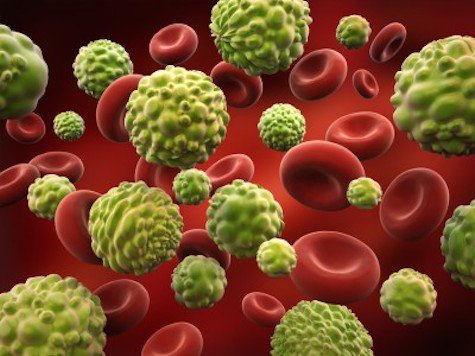Researchers: Fasting can kill cancer cells in common childhood leukemia
01/15/2017 / By Lance D Johnson

Specific cancer cells from childhood leukemia regress when intermittent fasting is applied. That’s what researchers from UT Southwestern Medical Center found out after testing their theory in laboratory mice. The most effective fasting method included six cycles of one day fasting, followed by one day of feeding.
The finding sheds new light on the health benefits of intermittent fasting, especially for healing type-dependent blood cancers. The same intermittent fasting strategy wasn’t effective for a type of blood cancer found in adults, myeloid leukemia (AML), but it profoundly halted and reversed the progression of acute lymphoblastic leukemia (ALL), sub-type B-cell and sub-type T-cell. (RELATED: Follow more medical discoveries at Medicine.news)
Dr. Chengcheng “Alec” Zhang, Associate Professor of Physiology at UT Southwestern and senior author of the study also said that they identified the mechanism that is responsible for the differing response during fasting.
Intermittent fasting shows potential for reversing childhood leukemia
In the study, the researchers tracked the cancer cells using green and yellow florescent proteins. They applied various fasting techniques and watched if the protein levels rose or fell in response to the fasting.
“Strikingly, we found that in models of ALL, a regimen consisting of six cycles of one day of fasting followed by one day of feeding completely inhibited cancer development,” said Zhang. After seven weeks the researchers couldn’t find any cancer cells in the mice that were put on that fasting regime. In mice that hadn’t fasted, 68 percent of cancer cells were still proliferating in the test areas. The areas of the body that saw the greatest reduction was in the bone marrow and the spleen, a blood filtering organ.
“In addition, following the fasting treatment, the spleens and lymph nodes in the fasted ALL model mice were similar in size to those in normal mice. Although initially cancerous, the few fluorescent cells that remained in the fasted mice after seven weeks appeared to behave like normal cells,” he said.
Fasting improved the longevity of mice as well. The mice that ate normal, steady diets perished within 59 days. 75 percent of mice on the fasting protocol lived longer than 120 days and the leukemia didn’t return in any of the cases.
Fasting stops leukemia cancer cells, signaled through the leptin pathway
Fasting works through a mechanism called leptin, which is a cell signaling molecule created by fat tissue. Leptin levels fall during periods of intermittent fasting. The researchers in this study observed not only this but also leptin levels falling in bone marrow. Repeated cycles of fasting made the effects stronger. “After fasting, the rate at which the leptin levels recovered seemed to correspond to the rate at which the cancerous ALL cells were cleared from the blood,” Zhang said.
“It will be important to determine whether ALL cells can become resistant to the effects of fasting,” he said. “It also will be interesting to investigate whether we can find alternative ways that mimic fasting to block ALL development.”
The difference between the two leukemia types stems from the difference between bone marrow derived blood cells. AML, more common in adults, targets white blood cells such as macrophages and granulocytes. ALL affects the white blood cells of the B and T variety. In all cases of leukemia, the cancer cells proliferate uncontrollably and displace healthy blood cells over time. These rogue cancer cells will even penetrate into other tissues and cause other health problems.
Since this fasting technique is noninvasive and uses no drugs, the researchers look forward to moving forward with human clinical trials to more quickly end the suffering, anemia, and reoccurring infections that come with these sub-types of childhood leukemia.
Learn more about cancer and diabetes prevention strategies at Prevention.news)
Sources:
Tagged Under: alternative cancer treatment, fasting, leukemia



















